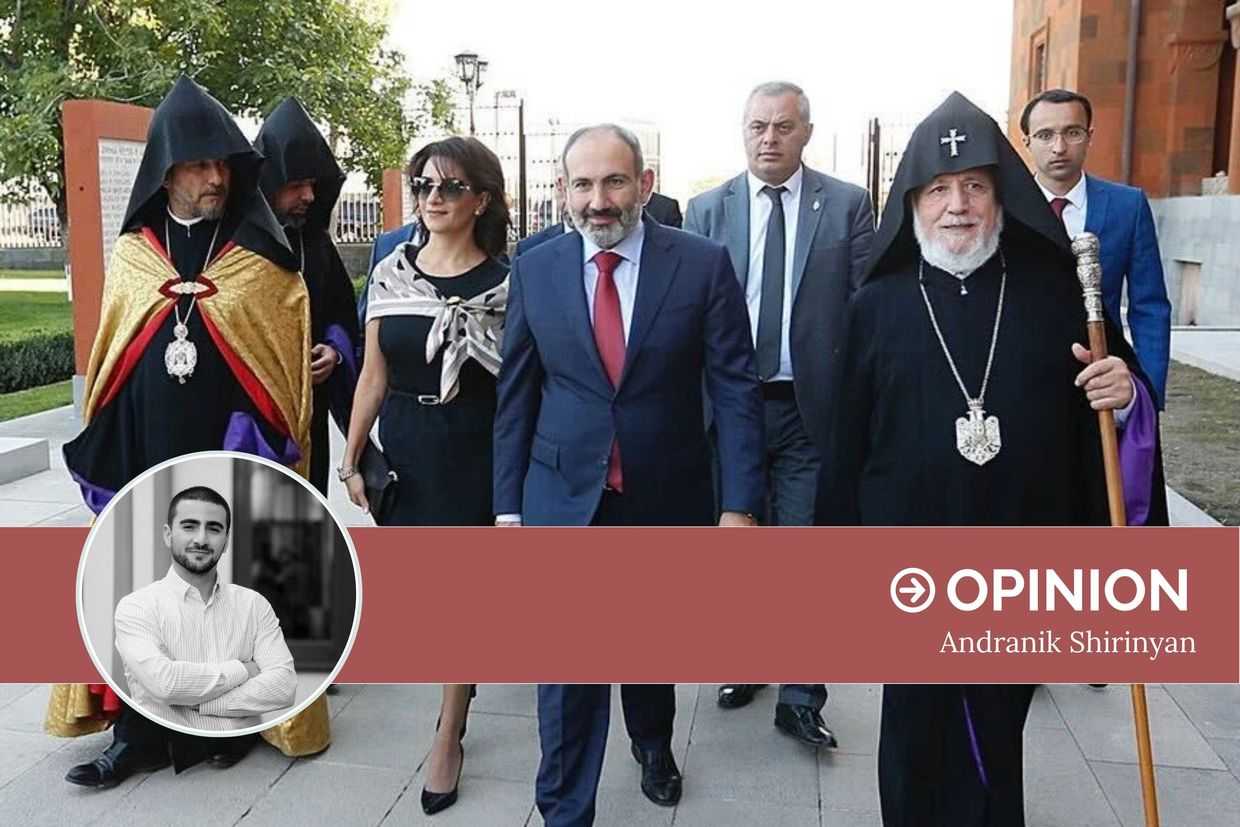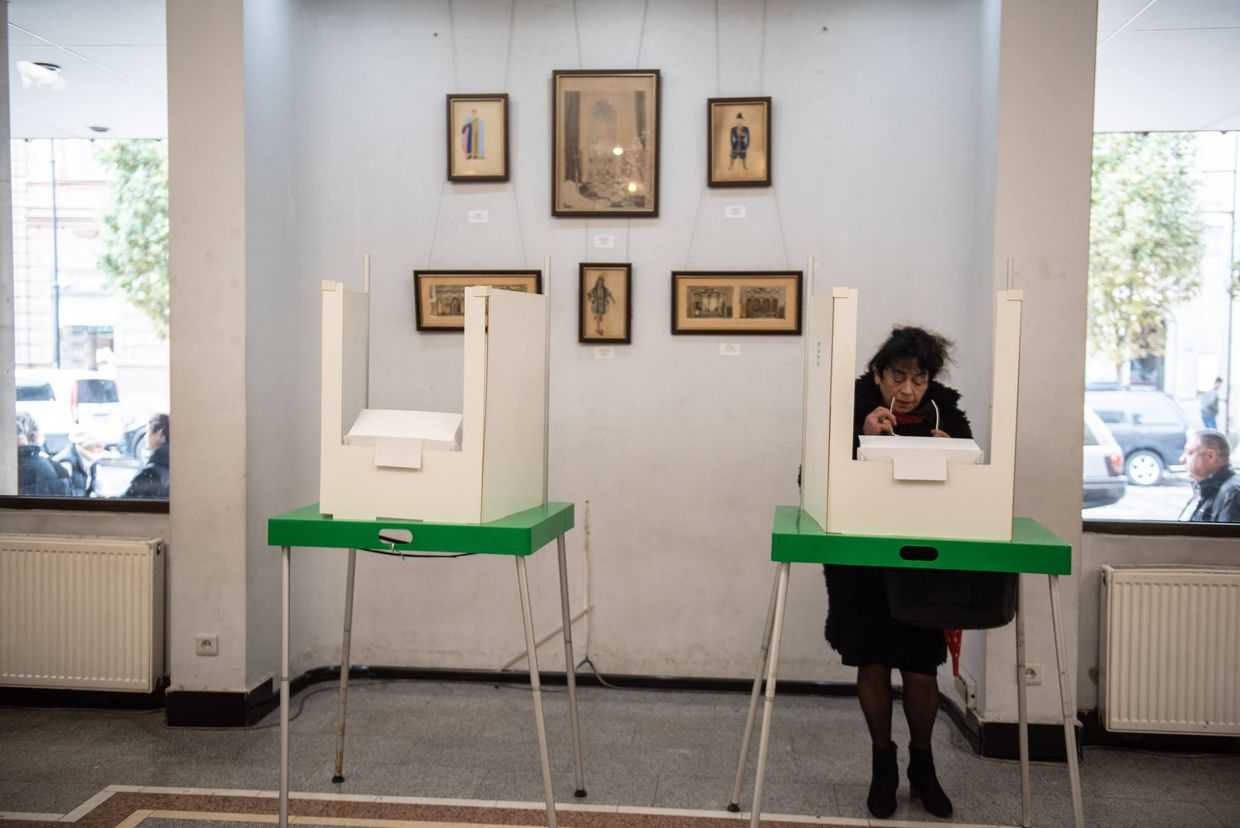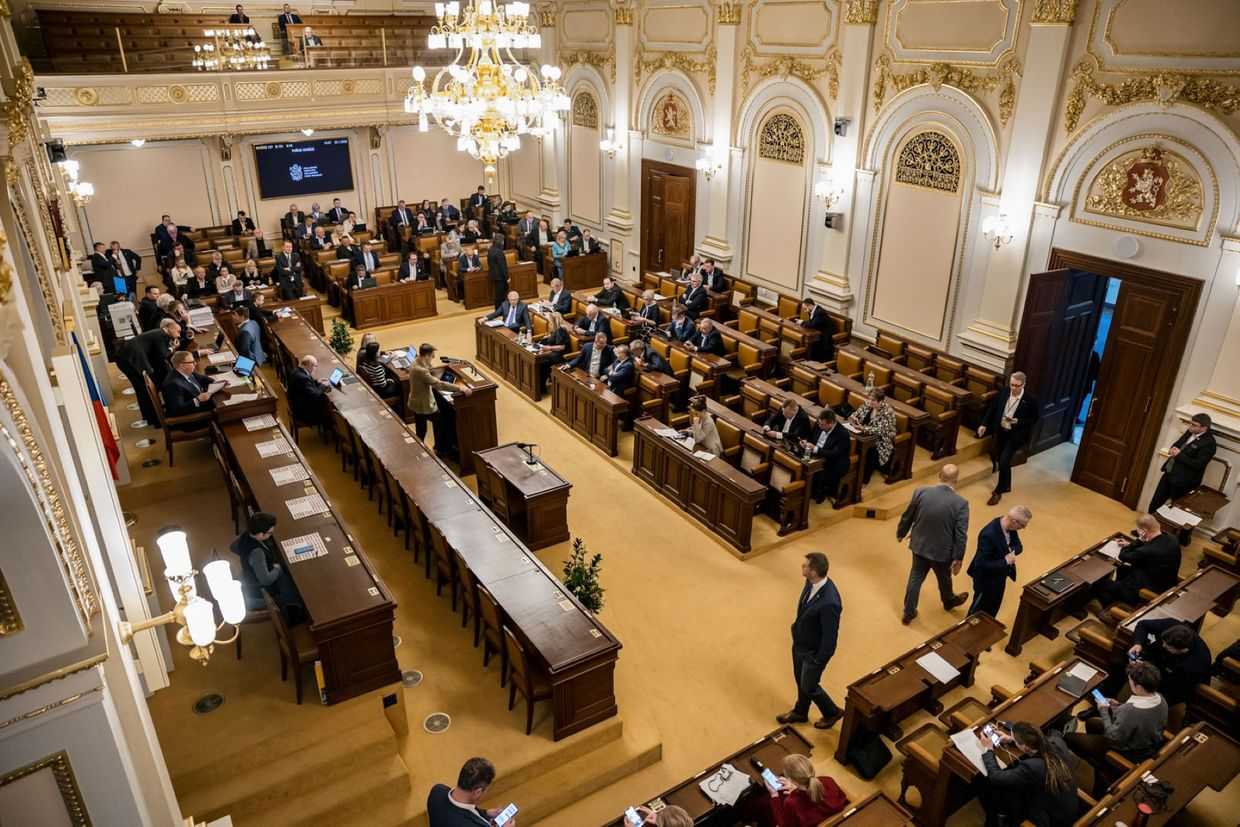
MPs from Georgia’s ruling Georgian Dream party have overturned the President’s veto of the controversial foreign agent bill, passing it into law.
At a plenary session of the Parliament on Tuesday, 84 MPs voted in favour of adopting the law unchanged. It will come into force in 60 days.
After the law passed, Speaker of the Parliament Shalva Papuashvili hailed his party for making an ‘important decision’.
‘No other people, no other country, no other power determines the life of our state and our people, and that’s exactly what this law is about’, he said.
The final adoption of the law follows almost two months of protests, during which protest leaders and government critics have faced police brutality and a spate of planned attacks near their homes by masked men. Several criminal cases were also filed against others, along with dozens of hefty fines.

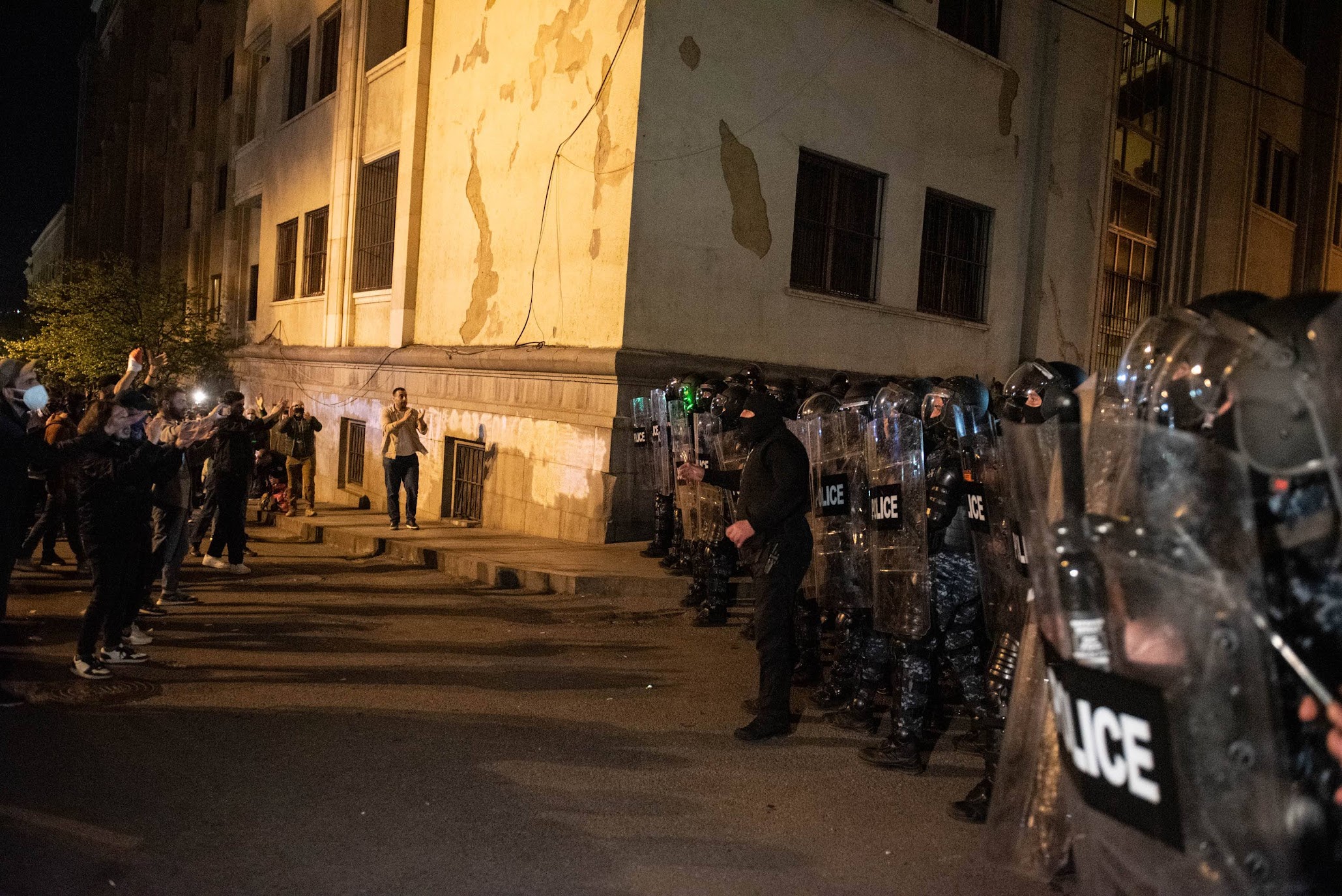
During the plenary session and before the vote, the president’s parliamentary secretary, Giorgi Mskhiladze, told MPs they would not be remembered kindly by history.
‘Tomorrow you will have to answer to your children’s question why you treated the country like this, why you treated their future like this’, he said. ‘You have to answer the main question, this will determine how you go down in history!’ he said. He was met by angry shouts and retorts from Georgian Dream MPs.
As Georgian Dream passed the bill, tens of thousands of protesters gathered outside parliament. After it passed, several opposition MPs addressed the crowd and called on President Salome Zourabichvili to join the protest.
Zourabichvili then made a live broadcast, in which she called the 84 MPs who voted for the bills ‘Orjonikidzes’, a reference to Georgia-born Bolshevik Sergo Orjonikidze, commonly portrayed as a traitor to Georgia.
‘They’ve pushed the button [to vote] and sent their names to a specific page of history, [but] we have to do everything now to prepare for 26 October [elections], which will be our answer to today’, she said. ‘You are angry today, aren’t you? Get upset, but let us get to business’, she said, adding that the election would decide if the country had ‘a European future or Russian slavery’.
‘Eighty-four men cannot decide this; we can. We’re all together’, she said.
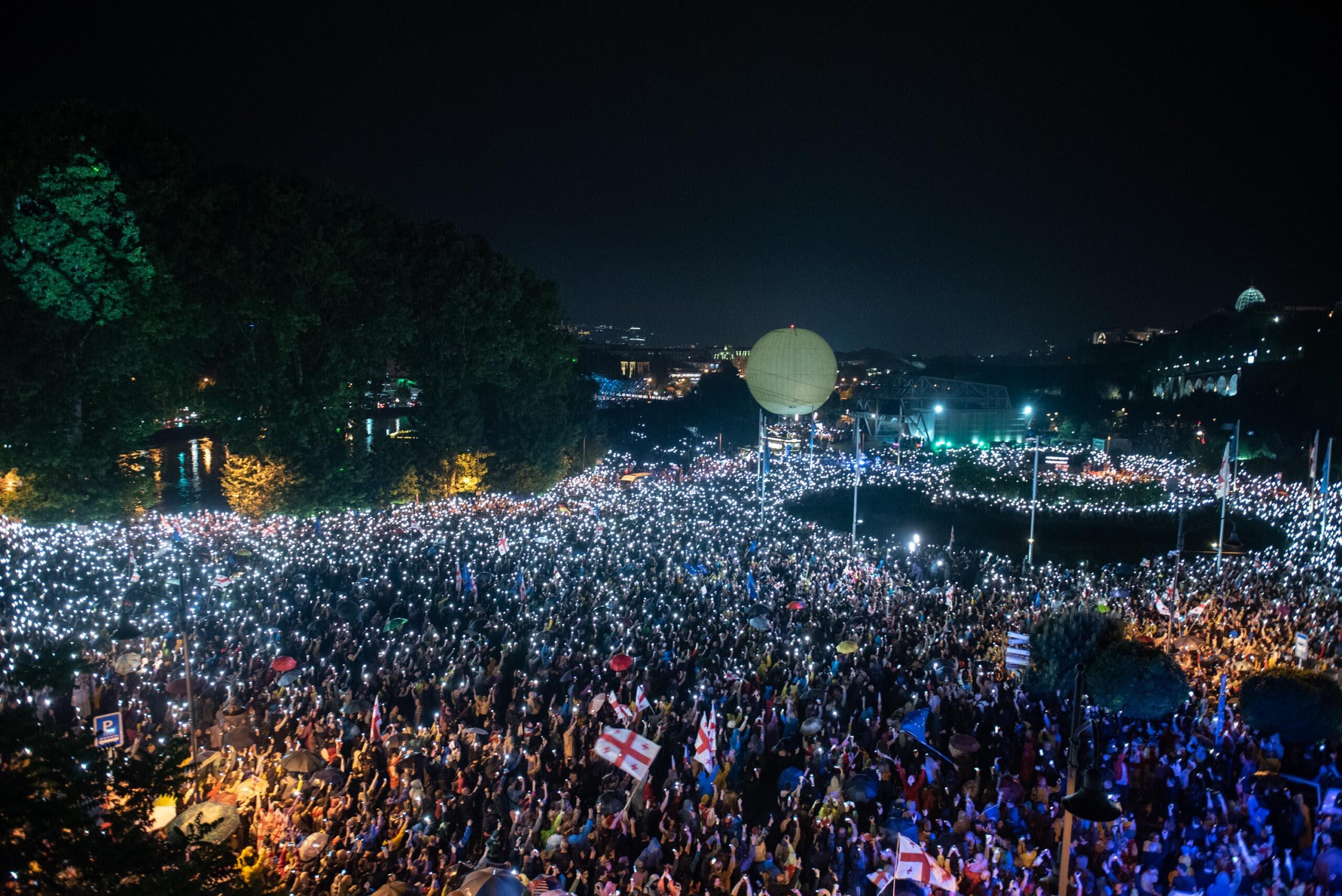
She also vowed to continue to communicate with Georgia’s Western partners, adding that ‘those Orjonikidzes may be sanctioned but they are not sanctioning the country’.
The ruling party has dismissed the possibility of sanctions. Following the law’s adoption, Prime Minister Irakli Kobakhidze said that ‘any attempt to blackmail the Georgian people and the government elected by the Georgian people with sanctions or any similar measures is not serious’.
‘No one can punish the Georgian people and no one can punish the government elected by the Georgian people. We have strong positions on everything. We serve this society, the interests of the country’.
Western countries and institutions have voiced vehement opposition to the law.
Following the vote, EU Commission President Ursula von der Leyen said the EU was ‘considering all options’ to respond. A number of European officials have made clear Georgia will not be able to join the bloc with the legislation in place.
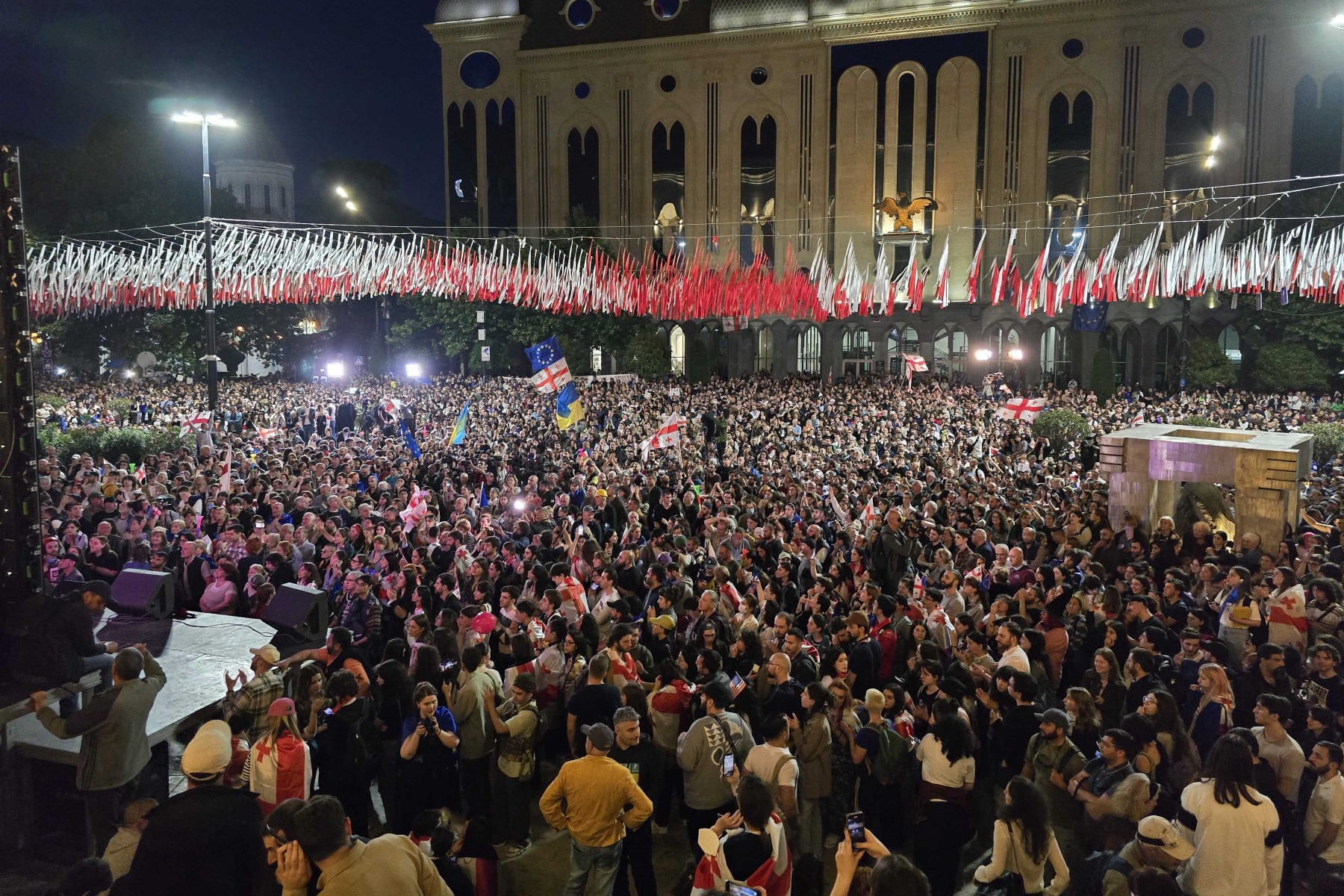
US State Department spokesperson Matthew Miller opened his daily press briefing on Tuesday by reiterating that the US ‘condemns’ the law.
‘The ruling party’s actions and anti-Western rhetoric threaten Georgia’s democratic trajectory, future economic security, EU membership, and also put the US–Georgia relationship at risk’, he said.
He also reiterated last week’s announcement of visa restrictions against individuals found to be undermining democracy in Georgia as well as a reexamination of US financial assistance to the country.
Bipartisan legislation that could impose further sanctions has also been submitted to the US House of Representatives.
Georgia’s foreign agent law would label any civil society or media organisation that received at least 20% of its funding from outside Georgia ‘organisations carrying out the interests of a foreign power’. Such organisations would be subject to ‘monitoring’ by the Ministry of Justice every six months, which could include forcing them to hand over internal communications and documents and confidential sources. Organisations and individuals who do not comply would be subject to large fines.
The law was previously proposed last March, with tens of thousands taking to the streets against it. The protests turned violent after police deployed tear gas, pepper spray, water cannons, and sonic weapons in an attempt to disperse them. The government was forced to vote down the legislation — dubbed the ‘Russian law’ due to its similarity to legislation used to crush civil society in Russia — just days after it was introduced in 2023.
Since bringing the law back, the ruling party has also proposed a number of other changes that have been widely condemned by civil society and human rights organisations as anti-democratic.




